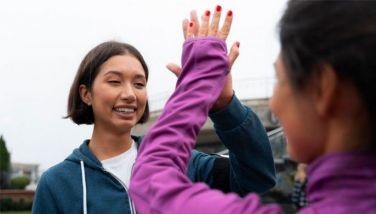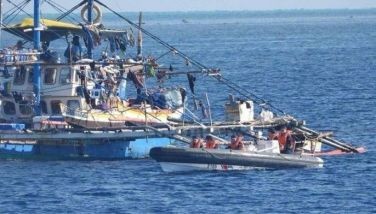Rights ‘superbody’ needs monitoring

It has been 36 years since president Corazon Aquino created the Presidential Human Rights Committee, in a much-hailed move that signaled to the Filipino people that her administration was firmly committed to the protection and promotion of human rights.
It was a welcome development that came after the overthrow of a horrendous dictatorship under which government itself subjected civilians to illegal detentions, massacres, extrajudicial killings and other crimes in order to perpetuate itself in power. The first PHRC was headed by the freedom fighter Jose W. Diokno.
Every sitting president since then, from 1988 to 2012, has reinstituted the council, whose composition has varied over the years. But up to this day little has been disclosed about what it has been doing.
Instead, it’s the human rights violations which have been continually in the news, from one administration to the next, what with the seemingly endless extrajudicial killings and enforced disappearances of activists and dissenters.
In earlier columns, I have repeatedly attributed the failure to end such impunity to the fact that not one civilian, military or police official during the 14-year Marcos dictatorship has been charged in court or made accountable for the human rights violations committed in those dark days of terror and infamy.
Early this week, Marcos Jr. announced that he had created, on May 8, a “Special Committee on Human Rights Coordination.”
Malacañang described the committee as an interagency “super body” tasked to “enhance [government] mechanisms for the promotion and protection of human rights in the Philippines.” Hasn’t that been the mandate of the PHRC? And isn’t it odd that a subordinate body is depicted as “super” or heftier in composition and function than its mother committee, which is headed by someone with the rank of undersecretary?
Perhaps the special committee’s composition would justify its being described as super. It will be constituted by the executive secretary as chairperson, the justice secretary as co-chairperson and the secretaries of foreign affairs and of the interior and local government as members.
Specifically, the committee is tasked to sustain the “initiatives and accomplishments” under the United Nations Joint Program (UNJP) on human rights in the areas of law enforcement, criminal justice and policymaking.
The three-year UNJP, expiring on July 31, was developed to implement Resolution 45/33 of the United Nations Human Rights Council (UNHRC), adopted on Oct. 7, 2020. It outlined specific areas for capacity-building and technical cooperation for the protection and promotion of human rights in the Philippines.
“It is imperative,” Marcos Jr. emphasized, “to sustain and enhance such accomplishments under the UNJP… through institutionalization of a robust multi-stakeholders process for the promotion of human rights” in the country.
Included among the duties and functions of the special committee are the following:
• Strengthening existing mechanisms for “investigation and accountability;”
• Data-gathering on alleged human rights violations by law enforcement agencies;
• Expanding civic space and engagement with the private sector;
• National mechanisms for implementation, reporting and follow-up;
• Human rights-based approach towards drug control and
• Human rights-based approach towards counterterrorism.
Moreover, the special committee is tasked to “monitor and ensure effective implementation of government policies and programs aimed at upholding and promoting human rights of persons deprived of liberty [detainees], particularly in guaranteeing that no one is subjected to torture and other cruel, inhumane or degrading treatment or punishment.”
Skepticism was promptly expressed by human rights watchdogs such as Karapatan, Amnesty International and Human Rights Watch. The latter saw the “super body” mainly as a “propaganda arm to defend government against allegations of rights abuses.”
Karapatan viewed it as a tactic by the Marcos Jr. administration “to evade accountability for the human rights violations committed during the previous and current regimes.” The human rights alliance foresees that the new body will just be like a Duterte inter-agency committee tasked to resolve EJKs, enforced disappearances, torture and other grave violations of human rights, ending up with “a pitiful record.”
Amnesty International bluntly said the government “doesn’t need a super-body to champion human rights.”
What it needs to do, AI urged, is to accept and implement the recommendations of the UN Human Rights Council, the UN Special Rapporteurs on Freedom of Expression and Opinion. The Marcos Jr. administration must also “get serious about returning to the International Criminal Court” (from which Duterte withdrew in 2018).
Success in implementing its defined duties and functions would depend largely on how the special committee would pursue its tasks. Certain factors would come into play in this regard.
For instance, in his publicized instructions to the body, Marcos Jr. advised its members to carefully select their subordinate officials to act in their stead should they be unable to personally carry out their duties or functions. Alternates must not be lower in rank than assistant secretaries, he instructed.
(It’s common knowledge that much of the time, underlings in the bureaucracy are made to carry the burdens for their bosses, who can invoke various excuses to delegate their duties and functions in the “super body.”)
Importantly, it is imperative to monitor how the “super-body” is complying – or if it is even complying – with its defined duties and functions. Given the government’s dismal record, militant monitoring is key.
Meantime, Marcos Jr. is adamantly sticking to his support for the National Task Force to End Local Communist Armed Conflict (NTF-ELCAC), rejecting the call from many credible sources, local and international, for its abolition because of the harm it has inflicted on human rights. He now heads the task force.
“We will not abolish the NTF-ELCAC. We are going to finish (its activities) because a few barangays have yet to be covered. Some [rebel] returnees have yet to receive help,” he said.
And today in Brussels, Belgium, the ad hoc International Peoples’ Tribunal is hearing, for the second and last day, cases against the Duterte and Marcos Jr. regimes involving alleged violations of International Humanitarian Law in their “counterrevolutionary war backed by the United States.”
- Latest
- Trending





























